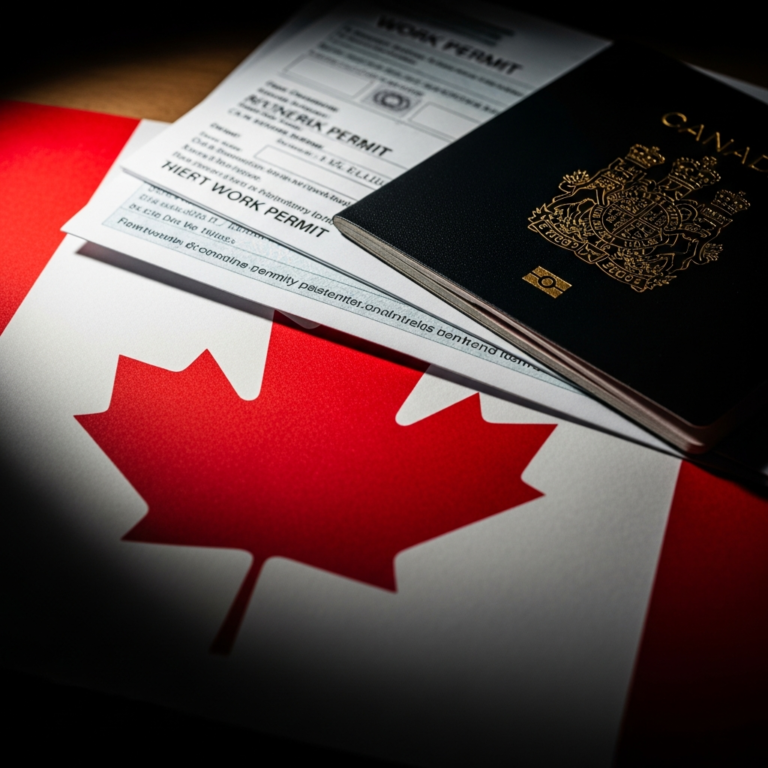Key Highlights of What is IELTS
Here is a quick overview of what you will learn in this guide:
- IELTS is the world’s most used English proficiency exam. You will see that more than 12,000 groups around the world accept it.
- There are two main types. The first is IELTS Academic, and it is for higher education. The second is IELTS General Training, and it is for work or for people who want to move to a new place.
- The test looks at four key skills. These skills are Listening, Reading, Writing, and there is a face-to-face Speaking test.
- The test is run by the British Council, IDP IELTS, and Cambridge Assessment English.
- People take IELTS when they need to show their English skills for university, professional registration, or moving to a new country.
Introduction: Why the IELTS Exam Matters
The IELTS, or International English Language Testing System, helps show your English language skills. You need this test if you want to study, work, or live in a country that speaks English. A good band score from the English language testing system proves you can use English well. This makes it easier for you to meet what schools, jobs, or groups ask for around the world. In this guide, you will find what is IELTS? and the key things about the English language testing system that you need to know.
What is IELTS? Definition, Purpose, and Recognition
The International English Language Testing System (IELTS) is a test that checks your ability to use the English language if you are not a native speaker. People trust the IELTS test all over the world. It is managed by the British Council, IDP: IELTS Australia, and Cambridge Assessment English. The main idea of the IELTS exam is to give you a fair score that shows how well you can use English for things like school, moving to a new country, or getting approved to work in your field.
IELTS gives you a choice between two tests. If you are aiming for higher education or need professional registration, you will take the IELTS Academic test. If you are moving for work, planning to get work experience, or going to secondary school, you should take the IELTS General Training test. The IELTS score is accepted in over 140 countries by many organizations. The IELTS Academic and the IELTS General Training test show your English language proficiency. Getting your IELTS score can help you get new chances and jobs around the world as proof of English.
Who Needs IELTS and Where It’s Accepted
IELTS is for people who need to show their language proficiency to reach their life goals. This test is for all kinds of people with different plans. If you want to go to another country, you may need to take IELTS.
You should think about taking IELTS if you are one of these:
- Student who wants higher education at a university or college in a country where people speak English.
- Medical professional, engineer, or accountant who wants professional registration to work in another country.
- Someone or a family who is planning to move to places like Canada, Australia, New Zealand, or the UK.
More than 12,500 places all over the world trust this test. This includes top universities, government offices, and big companies. You can book your exam at an official test centre in over 140 countries. This makes IELTS easy to get and well respected for your journey.
Why Take IELTS? Key Benefits for Study, Work & Immigration
Taking the IELTS exam can help a lot with your future in school and at work. It is used all over the world to check your English proficiency. Many universities and companies look at your score to see if you can talk and understand well in an English-speaking place. This means you could get into top schools or land good jobs that need you to show your English language skills.
The IELTS test format is made to be like real life. It checks how well you can talk about everyday topics. The way the test works covers what you need when you use English every day. Because of that, you can get ready for the real world. Below, we will look at how the IELTS exam can help you if you want to study, find work, or move to Canada.
For Canadian University Admission
For people who want to study at a Canadian university, having a strong IELTS score is very important. Most places for higher education in Canada ask students from other countries to show their language skills with an English proficiency test, and IELTS is one of the best-known tests for this.
You will need to take the IELTS Academic test. This test looks at if you can study well in an English-speaking school. The score you get must meet what the school or the program wants. It is smart to check what each university needs before you apply.
A good IELTS score helps you get into the school, and you might need it for your student visa too. The score shows government officers that you have enough English proficiency for your studies, and also to live comfortably in Canada. This step is key for your educational path.
For Canadian Permanent Residency (PR)
If you want to get Canadian permanent residency, you must take the IELTS exam. It is a key step for your application. The Canadian government looks at your English language test results to give you points for its immigration programs, including the popular Express Entry system. Your English language skills help decide if you are eligible.
When you apply for PR, you need to take the IELTS General Training test. If you get a higher IELTS score, you will earn more points in the Comprehensive Ranking System (CRS). This can make it much easier to get an Invitation to Apply (ITA) and move forward with your permanent residency process.
Your IELTS test result works as your official proof of English language proficiency for Immigration, Refugees and Citizenship Canada (IRCC). The Government of Canada says you must show your English language skills by taking an approved language test. [Source] If you get a good score, it will help make your immigration profile stronger.
For Professional Registration in Canada
For people who trained in another country and want to work in regulated jobs in Canada, showing English proficiency is a must for professional registration. Most Canadian regulatory bodies want you to pass an approved language test. This helps make sure you can speak and understand others in your field in a safe way.
Some jobs may want you to take the Academic test. But, in most cases, the IELTS General Training test is the one you need. This test checks if you have the real-life English skills for work. You must show you can understand co-workers, talk with clients, and do your job well.
You will see IELTS General Training scores are needed for these jobs:
- Nursing and other healthcare fields
- Engineering
- Accounting and Finance
Doing well on the language test is needed to get your license. The IELTS exam is an important part of moving ahead with your work in Canada.
Types of IELTS: Academic vs General Training

IELTS is not the same for everyone. There are different types of tests. Each test is made for a certain reason. The two main kinds are IELTS Academic and IELTS General Training. You need to pick the one that fits your goals and what the group you apply to wants.
The Academic test is for people who want higher education or professional registration. The General Training test is for people who want to migrate, work, or do non-academic training. Here are the main things that set them apart, along with how each one works.
Comparison of Purpose, Structure & Key Differences (with Table)
When deciding between IELTS Academic vs General, it is crucial to understand their distinct purposes and structures. While the Listening and Speaking sections are the same for both tests, the Reading and Writing sections differ significantly in content and task requirements. The overall level of difficulty is similar, but the context is tailored to different needs.
The Academic version uses texts and tasks suitable for a university environment, while the General Training version focuses on everyday situations and workplace contexts. This distinction ensures the IELTS exam pattern is relevant to your goals.
Here is a simple breakdown of the key differences:
Feature | IELTS Academic | IELTS General Training |
|---|---|---|
Purpose | For university/college admission and professional registration. | For migration, work, or non-academic training. |
Reading | Three long academic texts from books, journals, or magazines. | Texts from notices, advertisements, and books on general interest topics. |
Writing Task 1 | Describe and analyze a graph, table, chart, or diagram (150 words). | Write a letter requesting information or explaining a situation (150 words). |
Writing Task 2 | Write a formal academic essay in response to an argument or problem (250 words). | Write a personal-style essay on a topic of general interest (250 words). |
Inside the IELTS Test Format: A Module-by-Module Guide
Knowing the IELTS test format is very important if you want to prepare well. The whole IELTS test takes 2 hours and 45 minutes. There are four parts: Listening, Reading, Writing, and Speaking test. The Listening, Reading, and Writing sections happen on the same day, with no breaks between them.
For the paper-based test, you will fill in your answer sheet. If you take the computer test, you type the answers. The Speaking test is a face-to-face talk with an examiner. This part can be on the same day, or it could be up to a week before or after the other sections. Everything happens at official IELTS test centres.
Listening, Reading, Writing, Speaking Explained
The IELTS exam has four modules. Each one is made to check a different language skill and comes with its own format and time limit. You need to get used to these before your test day.
Here is what each module looks like:
- IELTS Listening (30 minutes): In this part, you listen to four recordings from native English speakers. Then you answer questions that go with each recording.
- IELTS Reading (60 minutes): You read three texts. After that, you have to answer 40 questions that check your reading skills.
- IELTS Writing (60 minutes): You do two writing tasks here. These tasks are not the same for academic and general training tests.
- IELTS Speaking (11–14 minutes): This part is a face interview with an examiner. You talk with them and they check your English proficiency in three sections.
Knowing how each module works will help you make good use of your time on test day. It also lets you feel ready when you take any part of the IELTS exam, including the general training modules, english proficiency checks, IELTS writing, reading, listening, and IELTS speaking face interview.
Computer-Based vs Paper-Based IELTS
When you sign up for your IELTS test, you can pick from two types: computer-based IELTS or paper-based IELTS. Both have the same questions, time, and setup. The big difference is the way you take the test.
You should go with what feels best for you. If you are fast at typing and can move around a screen easily, the computer-based test might work best. If you like to write with a pen or pencil, then the paper-based test will suit you more. You will take both kinds at an official test centre.
Here are some important things to keep in mind:
- Results: If you choose the computer-based IELTS test, you will get your results in 3-5 days. For the paper-based test, it will take 13 days to see your score.
- Writing: The computer-based test gives you a word counter in the Writing part. This can help you keep track of your words.
- Booking: On test day, both tests feel much the same. You will find that the computer-based IELTS test is often offered on more dates.
How IELTS Scoring Works: Understanding Your Band Score
The IELTS scoring system is made to give you a clear and easy summary of your English skills. You do not pass or fail IELTS. Instead, you get a band score for every section. The sections are Listening, Reading, Writing, and Speaking. The scores go from 1 (Non-user) to 9 (Expert user).
Your scores from all four sections get added up and then divided to find your overall band score. This final score helps schools, jobs, and immigration offices see, in just one number, how good you are at English. Now, let’s look at the 9-band scale and see how it works.
The IELTS 9-Band Scale Explained
The IELTS 9-band scale is made to show your english language skills in a clear way. Each band tells you about a different level of english, starting from non-user up to expert. The exam gives out scores in whole bands or half bands. For example, you might get a 7.0 or a 7.5.
When you get a higher band score, it means you have better command of the english language. If you score “Band 9,” you have strong control of English, while a “Band 6” means you can use it well, even if you sometimes make mistakes. Knowing what each band shows can help you pick the right target score for your needs.
Here is a look at the scale:
- Band 9 (Expert User): Has full, strong control of the english language.
- Band 7 (Good User): Has good control, but sometimes makes errors. Can handle difficult language quite well.
- Band 5 (Modest User): Has some control and can do basic talking in their own line of work.
IELTS Score Requirements for Canada (Universities, PR, Colleges)
The IELTS score you need for Canada changes based on what you want to do, like applying to a university, a college, or an immigration program. Each place has its own minimum IELTS requirements, so you must check the score each one needs before you apply.
If you want to go to university, most schools ask for a total score of 6.0 or 6.5 on the IELTS Academic test. Make sure no band is below 6.0 on your test. Some top universities or programs for masters or PhD may ask you for a score of 7.0 or even higher.
If you apply for immigration, the needs are also clear:
- Express Entry (Skilled Worker): You need at least Canadian Language Benchmark (CLB) 7. This matches an IELTS score of 6.0 in each part of the test.
- Provincial Nominee Programs (PNP): The score needed changes for each stream, but many ask for at least CLB 4 or 5.
- Student Direct Stream (SDS): You have to get a score of 6.0 in all four skills on the IELTS Academic test.
Remember to look up the latest IELTS requirements so you know what score to aim for and can get your best chance to come to Canada through study or Express Entry.
How to Prepare and Book Your IELTS Exam (Step-by-Step Guide)
Getting ready for the IELTS is important if you want to reach your ideal IELTS score. Follow these steps to prepare and book your exam:
- Learn the Test Format: Understand the structure of the IELTS test and the types of questions you will encounter.
- Use Preparation Resources: Explore various IELTS preparation tips and resources, including those from the British Council or IDP.
- Take Practice Tests: Complete official practice tests to get familiar with the timing and experience what the test will be like.
- Understand Expectations: Be aware that what learners and teachers expect from IELTS preparation courses can influence the final results, as noted by education expert Alan Green in a study from Cambridge University Press.
- Register for the Test: When you feel prepared, visit the official IELTS website to book your test.
- Choose Your Test Type: Decide between Academic or General Training.
- Select Format: Choose whether you want to take the test on a computer or with paper.
- Find a Test Center: Look for a test center and select a date that works for you.
- Book Early: Make sure to book your test early to have more time to use the top preparation materials that often come with registration.
Conclusion
To sum up, knowing what IELTS is and why it matters can help you a lot in your school and work life. The test has clear modules and a scoring system that people all over the world trust. IELTS is a good way to show your language proficiency. It helps if you want to study in Canada, get permanent residency, or have professional registration. The IELTS exam can open up many chances for you.
When you get ready for the test, keep in mind that the right preparation is important. Use the tools you have, practice often, and learn about the test format. This can help you get the band score you want. If you need help with preparing for the IELTS exam or want some quick tips, reach out for a free talk with USCA Academy
Frequently Asked Questions
1. How long are IELTS scores valid?
Your IELTS score can be used for up to two years from the day you take the test. After this two-year time, most places and immigration offices will not take your Test Report Form as good proof of English skills if it is older than two years.
2. How soon can I retake the IELTS test?
There are no rules stopping you from taking the IELTS test again. You can book a new test when you feel ready for it. Test takers can sign up for the next test day at any official test centre.
3. Is IELTS required for university admission in Canada?
Yes, most universities in Canada ask international students to show their English language skills. The IELTS Academic test is used by the schools for this. You need the test for higher education programs. It is also needed for student visa applications.
4. What is the cost of the IELTS exam in Canada?
The IELTS exam fees in Canada are usually between $300 and $350 CAD. The exact price can change based on the test centre and the province where you take the test. To see the most up-to-date cost, it is a good idea to visit the official website of the British Council or IDP IELTS.
5. How does IELTS compare to other tests like PTE or TOEFL?
Tests like PTE and TOEFL also check how well people know English. But IELTS stands out because it has a face-to-face speaking test. More than 12,500 groups and companies around the world accept it. This english proficiency test is also the only one needed for immigration in every country that asks for an english proficiency certificate.









